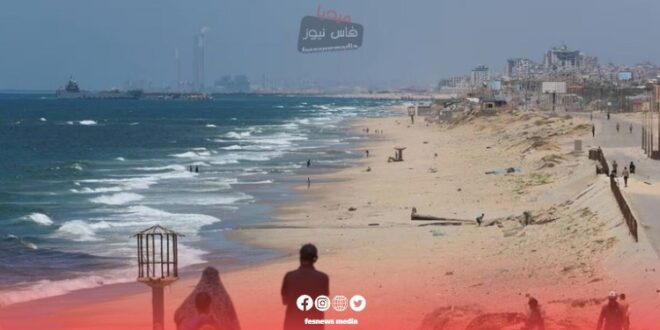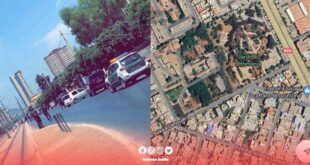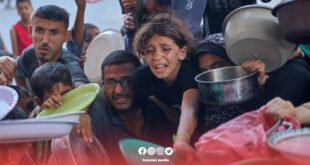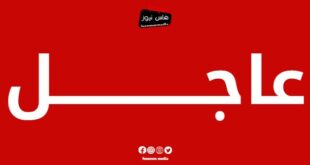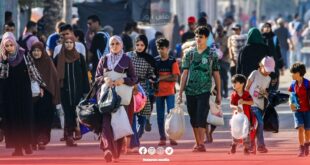Fierce fighting between the Israeli army and Hamas in the Gaza Strip began on Friday, as the first unloading of humanitarian aid began days after it was blocked at a temporary pier set up by the US.
In the eighth month of the war against the Palestinian Islamist movement, the Israeli army announced on Friday that it had found in the Gaza Strip the bodies of three Israeli hostages kidnapped during Hamas’s unprecedented attack on Israel on 7 October and had repatriated them.
Shani Luk, Amit Buskila and Itzhak Gelernter were ‘taken hostage’ and ‘brutally murdered’ by Hamas as they tried to flee the Nova music festival in southern Israel, spokesman Daniel Hagari said.
At the same time, the army told AFP that it had launched ‘perhaps the fiercest’ fighting in Jabalia in this northern part of the Gaza Strip since the start of its ground offensive on the Palestinian territory at the end of October.
Six people were killed in their bombed-out homes in the strip, according to the Palestinian Civil Defence.
The Israeli army also claimed to have ended its operation in the Zeitoun neighbourhood of Gaza City (north), after a week of ‘precision raids’, killing ‘more than 90 terrorists’.
More than 35,300 Palestinians, mostly civilians, have been killed since the start of the war sparked by the Hamas offensive, according to figures from the Ministry of Health in the Hamas-led government in Gaza.
After days of blocking humanitarian access to the besieged and famine-threatened Palestinian enclave, the US military announced that the first shipment began unloading on Friday via a temporary US dock off the coast of Gaza.
It also announced the arrival of ‘approximately 500 tonnes (of aid) in the next few days’.
London announced that a cargo of British aid ‘was successfully delivered to the Gaza coast (….) along with aid from the US and UAE’ via the Cyprus sea lane, while France reported that a Cypriot navy ship with 60 tonnes of aid was being unloaded at the US floating dock.
However, the land route remains the ‘most feasible and effective’, as emphasised by the UN humanitarian agency OCHA.
Further south, in Rafah, the Izz ad-Din al-Qassam Brigades, the armed wing of Hamas, announced that it had targeted Israeli forces ‘stationed at the border point’ with Egypt with rockets.
The brigades said in a statement that Israeli forces opened fire on the coast of Rafah, where thousands of displaced people are still fleeing the Gaza Strip after overnight raids targeting them.
Israel announced on Thursday that it would ‘intensify’ its ground offensive in Rafah, with the stated aim of eliminating the last of the Hamas brigades, despite international concerns over the fate of hundreds of thousands of displaced people crowded into the town.
Thirteen countries – Japan, Canada, New Zealand, the UK, Australia, South Korea and seven EU member states including France – sent a joint appeal to the EU not to launch a large-scale assault on Rafah, which Israeli Prime Minister Benjamin Netanyahu described as ‘decisive’.
In their joint appeal, the 13 countries also called for ‘additional efforts’ to improve the flow of international aid ‘through all relevant crossing points, including the Rafah crossing’.
Israel’s main backer, the United States, which also opposes a major offensive on Rafah, announced that White House national security adviser Jake Sullivan would visit Israel on Sunday, after a stopover in Saudi Arabia on Saturday.
Since the Israeli army deployed on the Palestinian side of Rafah on 7 May, Israelis and Egyptians have been blaming each other for paralysing this vital crossing for the entry of aid, which is also largely blocked at the Kerem Shalom and Erez crossings on the Israeli side.
Against this backdrop, Washington announced on Friday that it had evacuated 17 American doctors who were stranded in the Palestinian territories.
Since Israel ordered civilians to leave the eastern sectors of Rafah on 6 May in anticipation of a major ground offensive, ‘640,000 people’ have fled the city, ‘including 40,000 on 16 May’, according to OCHA.
The World Health Organisation (WHO) spokesperson in Geneva, Tarik Jasarevic, said: ‘We have been able to distribute some supplies, but there are still a lot of supplies missing, especially the fuel needed to run hospitals.’
From the website: FasNews
 فاس نيوز ميديا جريدة الكترونية جهوية تعنى بشؤون و أخبار جهة فاس مكناس – متجددة على مدار الساعة
فاس نيوز ميديا جريدة الكترونية جهوية تعنى بشؤون و أخبار جهة فاس مكناس – متجددة على مدار الساعة

